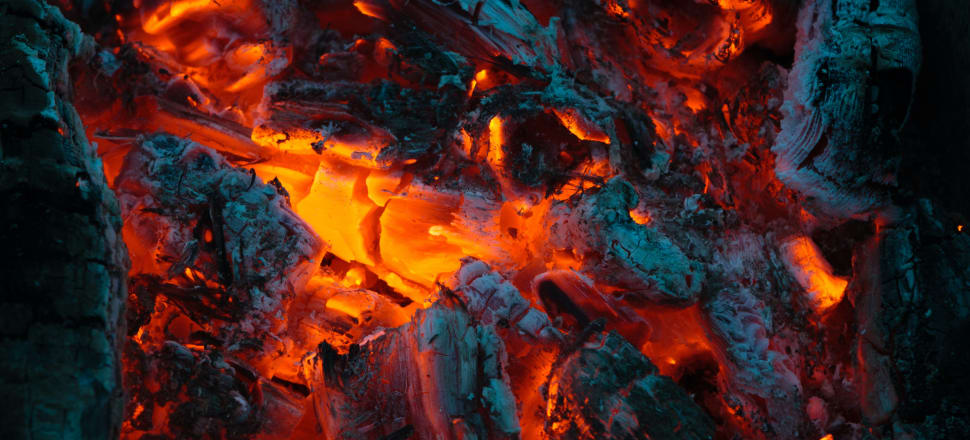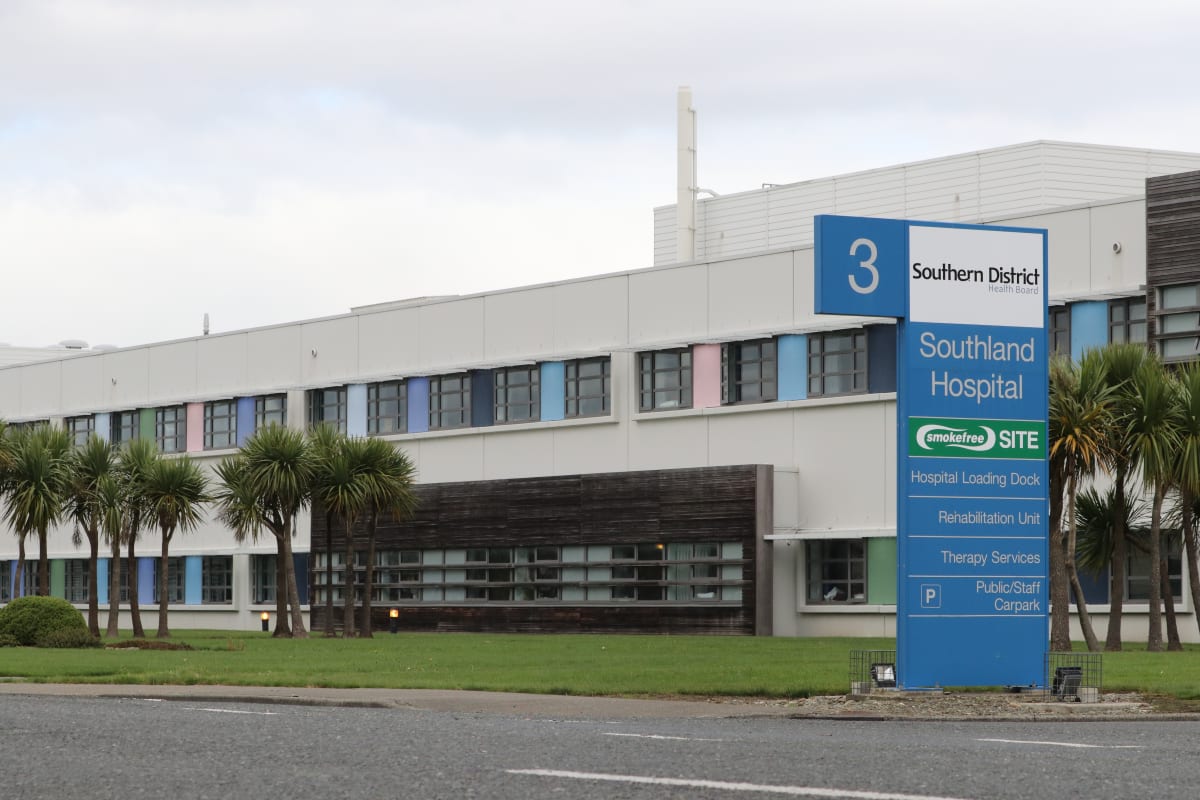
Hospital coal boilers are being replaced or re-purposed, but some say the pace is too slow, especially considering the Government has declared a climate emergency. David Williams reports
In 2019, consultant anaesthetist Dr Matthew Jenks presented a carbon footprint assessment to a Southern District Health Board committee.
According to Jenks’ study, the DHB, which spans Otago and Southland, produced 28,240 tonnes of CO2 emissions, with 58.6 percent from coal burnt to heat and provide hot water to Dunedin and Invercargill hospitals.
Greenhouse gas emissions in Southern were high compared with other major DHBs. Indeed, nitrogen dioxide emissions were three times that of other DHBs.
Jenks told the hospital advisory committee that greenhouse gas emissions could be reduced by 80 percent by 2030 through a range of measures, including eliminating coal use at hospitals, efficient electricity use, and switching its vehicle fleet to electric.
Is such a goal realistic, Southern DHB commissioner Kathy Grant asked at the time.
Pioneer Energy was considering options to switch Southland Hospital’s boilers to biomass, Jenks replied, while the future of Dunedin’s energy centre, which powers the hospital and university, was tied to the Dunedin Hospital rebuild.
“I would like to see action earlier,” he said.
“The health sector is the largest emitter of carbon emissions in the public sector.” – Graham Smith, Te Whatu Ora
“Where I see concerns [around air pollution] was at Southland Hospital. Southland has terrible issue with air quality and it is responsible for a lot of respiratory illness in the Southland area ... we’ve got a coal burner sitting in the middle of our hospital.”
Fast-forward to last month, when a new study named Invercargill as having the country’s highest rates of premature deaths and hospital admissions from air pollution.
The study estimated 3300 people die each year from exposure to air pollution, while there were 13,100 annual hospital admissions for respiratory and cardiac illnesses because of low air quality.
Which begs the question, what has happened since Jenks’ study?
It’s certainly something Coal Action Network Aotearoa’s Jenny Campbell, a retiree from Mossburn, just over 100km south of Queenstown, has been asking.
Her interest was prompted, more than five years ago, by what she calls a lignite smell in southern Invercargill – “that was just horrendous in winter”.
“They need to smarten up their act and get on implement putting in these wood chips.”
(None of this is new. Here’s a story from 2016 urging Southland to switch from coal to wood.)

Our questions about decarbonisation to Te Whatu Ora Health NZ elicited this startling line in an emailed statement from Graham Smith, interim chief infrastructure and investment officer. “The health sector is the largest emitter of carbon emissions in the public sector.”
Squeezed funding over successive government has no doubt boxed DHBs into making short-sighted decisions based on the cheapest options.
“Hospitals alone use a lot of energy when serving Aotearoa’s health needs 24 hours a day, seven days a week,” Smith says.
The science behind climate change, driving rising temperatures and extreme weather events, provides important impetus for switching to cleaner energy, as does the Government’s declaration of a climate emergency in 2020, paired with a promise of a carbon-neutral public service by 2025.
Smith says Te Whatu Ora and the Energy Efficiency Conservation Authority have a programme to replace coal boilers in the health system.
Since the programme started two years ago, there have been 11 coal boiler replacements at five sites. Work continues on eight sites with 14 boilers, as officials get a better understanding of the systems and consider the best solution.
“Timaru Hospital’s new system recently went live and Christchurch’s new Energy Centre is expected to be complete by the end of the year,” Smith says.
Once complete, Christchurch Hospital’s $45 million energy centre, featuring two new woody biomass boilers, will reduce Te Whatu Ora Waitaha’s overall emissions by 50 percent.
Before they were replaced in 2016, the old boilers at the hospital in the Christchurch suburb of Burwood used seven tonnes of coal a day, in winter.
The $122 million Te Nīkau Hospital & Health Centre, in Greymouth, which opened in 2020, is powered by a new coal boiler.
Dr Rob Ojala, executive director of infrastructure at Te Whatu Ora Te Tai o Poutini says wood pellet trials in the boiler were completed in September last year, which proved successful.
“Further progress on this project was halted until recently to enable our facilities team to focus on keeping people safe during the Covid-19 pandemic by improving ventilation and airflows in our facilities, among other things, to minimise the spread of the virus,” he says.
“We are now seeking a commercial proposal to convert the existing coal boiler to run on pellets, including changes to the fuel supply and delivery system.”
Newsroom asked Te Whatu Ora for figures on the total money spent on boiler conversions and emissions saved. We were told the information wasn’t easily extracted or available, so the request was sent down the formal, and longer, Official Information Act path.

Southland Hospital’s two coal boilers, which produce steam and hot water, make up about 25 percent of the health district’s energy consumption and energy-related carbon emissions.
Campbell, of Coal Action Network Aotearoa, worries the boilers are a health hazard.
“When people get sick, and they’re breathing in these sorts of fumes, then that’s not helping our health bill, is it, at Southland Hospital?”
But that’s unlikely to be the case, according to Dr Gerda Kuschel, lead author of the study published last month that estimated premature deaths and hospitalisations from air pollution.
Kuschel, an Auckland chemical and materials engineer, says there weren’t significant signals from industrial air pollution sources across New Zealand in the study, based on 2016 data.
Also, commercial boilers require consents and are better regulated, with control equipment often mandated to limit emissions.
When the data revealed Invercargill had the country’s worst air-pollution-related death rate – for the record, 219 per 100,000 people aged 30-plus – Kuschel and her team drilled into the data.
A detailed study would be needed to give more certainty, but generally speaking: it’s cold and people are old.
“The further you go down the latitudes towards the southern part of New Zealand, it gets colder,” Kuschel says, “and people in winter-time need to heat more to keep themselves at a safe temperature ... they tend to use more energy to heat their homes.”
Across New Zealand in 2013, 37 percent of people used wood to heat their home, and 4 percent used coal. In Invercargill, those figures were 49 percent, for wood, and a staggering 31 percent for coal.
The city’s air pollution concentrations have been stubbornly high, historically, for years.
“It is a tricky thing from a public health perspective because you don’t want to say coal is bad without there being an alternative for the simple reason that people being cold is enough to kill them, particularly again if they’re in those [older] age groups.”
The demographic data shows Invercargill has a greater proportion of older people, and people susceptible to air pollution.
It’s like Covid-19 statistics, Kuschel explains – the older you are, the higher the chance you’ll have an unhelpful comorbidity, like respiratory or cardiovascular disease, which heightens the risk of getting serious illness.
The good news from the study is the same as the bad news: that small amounts of air pollution cause big effects. “If you can reduce and improve things a little bit, you’ll see a massive difference,” Kuschel says.
“Converting existing boilers to wood-chip is the lowest carbon central plant option.” – Lumen Ltd report
According to the regional council, Environment Southland, air pollution is already on the improve, with Invercargill having its best air quality results last winter.
“This year we are working to build on that progress,” team leader in air and terrestrial science, Owen West, says in a statement.
Each year, the council runs an awareness campaign about good home heating, and since 2016 old burners have been progressively replaced with new, more efficient ones, helped by a clean air loan scheme.
The latest research suggests domestic heating and motor vehicles are the biggest contributors to Southland’s air pollution.
West says: “Figures from 2015 estimated that industrial sources, which include the hospital boiler, contributed to only 4 percent of Invercargill’s daily winter PM10 [particulate matter] emissions.”
The health impacts might not be a huge driver to change boiler fuels, then, but the Government’s climate change targets are.
Te Whatu Ora Southern, formerly the DHB, provided an initial opportunities report completed earlier this year, which assessed the technical and commercial viability of switching Invercargill’s boilers from coal.
The study found energy-related emissions could be reduced by up to 89 percent by investing between $3 million and $9 million.
Options include converting to wood fuel, building a 3-megawatt ground source heat pump central plant, as well as implementing energy efficiency measures, and consideration of de-centralising the energy plant.
“Converting existing boilers to wood-chip is the lowest carbon central plant option,” says the report by energy and engineering consultancy Lumen Ltd.
“The capex required to make this happen is very low. Additionally, for this site, wood-chip has a lower operating cost than wood-pellet and very low emissions per unit of heat energy provided.”
Te Whatu Ora Southern general manager of facilities & property Dave Bainbridge-Zafar says via email the next steps include employing an energy manager, who will oversee the report’s implementation, and who will negotiate with Pioneer Energy.
“It is not anticipated that the boiler itself will need to be replaced, given it is capable of operating on wood-chip. Once plans and designs are in place, we will go out to market to get any required changes to the system implemented.”
Pioneer installed Invercargill hospital’s boiler, which has dual fuel capacity, in 2012/13. Commercial manager Nigel Ellett says biomass trials at the hospital were carried out in 2020.
“We are now working with Te Whatu Ora under our contractual framework to determine a plan to enable the transition.”
For Dunedin, Pioneer has presented a proposal to convert the steam supply to biomass, which will require a contract variation.
Ellett says: “It is anticipated that the transition will take six months from agreeing the variation to complete the works.”
OraTaiao is the NZ Climate & Health Council, a group of environmentally conscious health professionals. Co-convenor Dr Dermot Coffey, a Christchurch GP, says replacing or re-purposing coal boilers is the low-hanging fruit for health-related greenhouse gas emissions.
“We’d like to see a date for a final shift away from coal,” he says. “Waiting till the end of a boiler’s life before repurposing them isn’t going to be quick enough.”
Campbell, of Coal Action Network Aotearoa agrees. From a moral standpoint, a hospital shouldn’t be a polluter, especially during a climate emergency. “It looks like they’ve done all the research.”
She’d like Te Whatu Ora, and Pioneer, to make the change as soon as possible, for the good of Invercargill’s people, and the planet.
In 2019, Jenks – the anaesthetist who did the carbon footprint study on the then Southern DHB – told the Otago Daily Times why he was joining a public climate strike.
Those words may as well have been a message to health bosses about shifting from coal: “We know what needs to be done. We know that time is against us. We must act now.”







